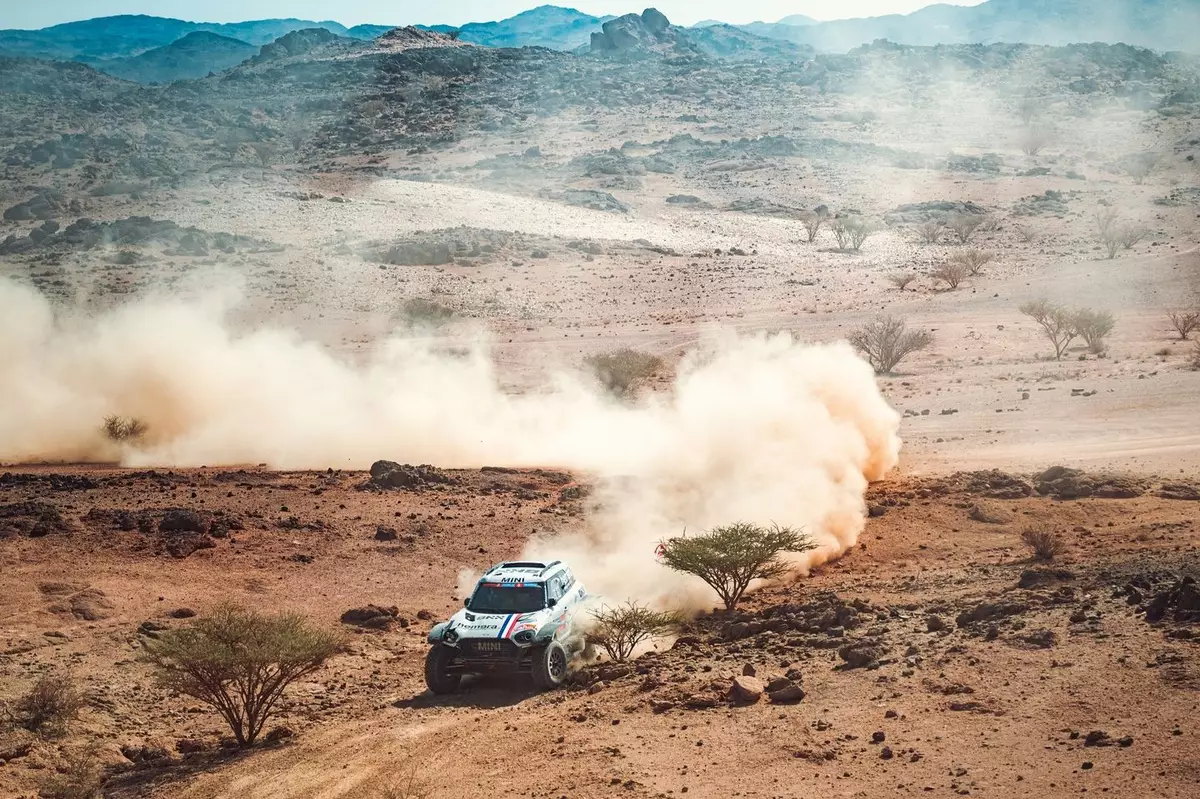The 2025 Dakar Rally kicked off in Saudi Arabia with a dramatic opening stage that saw French driver Guerlain Chicherit securing an unexpected victory for X-raid Mini. His performance during this 499-kilometer stage around Bisha turned heads in the racing community, making it clear that the competition would be intense between the elite teams vying for glory. Chicherit’s success was far from guaranteed, as he faced stiff opposition from the formidable Toyota squad and its support team, Overdrive.
Right from the beginning of the stage, Chicherit showcased his determination and skill, quickly establishing a lead of over a minute in his Mini JCW Rally 3.0i. His speed caught the attention of fellow competitors, particularly those behind the wheels of Toyota’s Hilux T1+ vehicles. This quick start set the tone for a nail-biting contest among some of the best talents in the rally circuit, each determined to wrestle the lead from Chicherit as the grueling stage unfolded.
As the race progressed, Chicherit initially held his ground, but the cutthroat nature of rally racing soon came into play. By the time the drivers reached the 151-kilometer mark, competitors such as Lucas Moraes and Saood Variava began to surpass him, showcasing the tactical battles that often characterize the Dakar Rally. Chicherit, however, was not about to cede his position without a fight. He cleverly regained momentum as the stage wore on, engaging in a thrilling exchange of leadership with Moraes, who was making a strong case for Toyota’s dominance.
With the stage approaching its climax, Chicherit found himself trailing Moraes by 18 seconds. This gap, while seemingly manageable, underscored the tension of the situation. Determined to secure a noteworthy victory, Chicherit unleashed a remarkable series of maneuvers that allowed him to reclaim the lead, culminating in his eighth career stage win at the Dakar, and symbolizing Mini’s resurgence since their last stage win in 2021.
Moraes’s tactical decision to halt for several minutes revealed another layer of strategic planning involved in rally racing, as he aimed to optimize his position for the subsequent 48-hour chronometric stage. While dropping to eighth may seem counterintuitive to many, it reflects the complexities involved in racing strategy where controlling the pace and positioning for future challenges can dictate overall success. This fascinating aspect of the race provided an insightful glimpse into the mental games that accompany such physically demanding competitions.
Following Chicherit’s triumphant run, the leaderboards were reshuffled, with Seth Quintero securing second position just 50 seconds behind the stage winner. Variava rounded out the top three, while privateer Martin Prokop impressively climbed to fourth place in his Jipocar Ford. The shifting dynamics of the race highlighted the unpredictable nature of the Dakar Rally, with several prominent names finding themselves in surprising positions due to strategic plays and unforeseen challenges.
Veteran drivers like Carlos Sainz also showcased their expertise, maneuvering from the depths of the leaderboard back to seventh place. Meanwhile, the pitfalls that befell drivers such as Nasser Al-Attiyah and Sebastien Loeb, who intentionally slowed their pace to conserve energy for upcoming stages, shone a light on the strategic complexities of rally racing.
As the competitors gear up for the marathon stage covering an enormous distance of 947 kilometers without external assistance, the events of this opening stage serve as a reminder of the fierce competition and tactical acumen required to thrive at the Dakar Rally. Chicherit’s victory not only fosters hope for the Mini team but also sets the stage for an exhilarating contest ahead. This first stage has laid critical groundwork, priming both drivers and fans for the challenges that await in this legendary rally.

